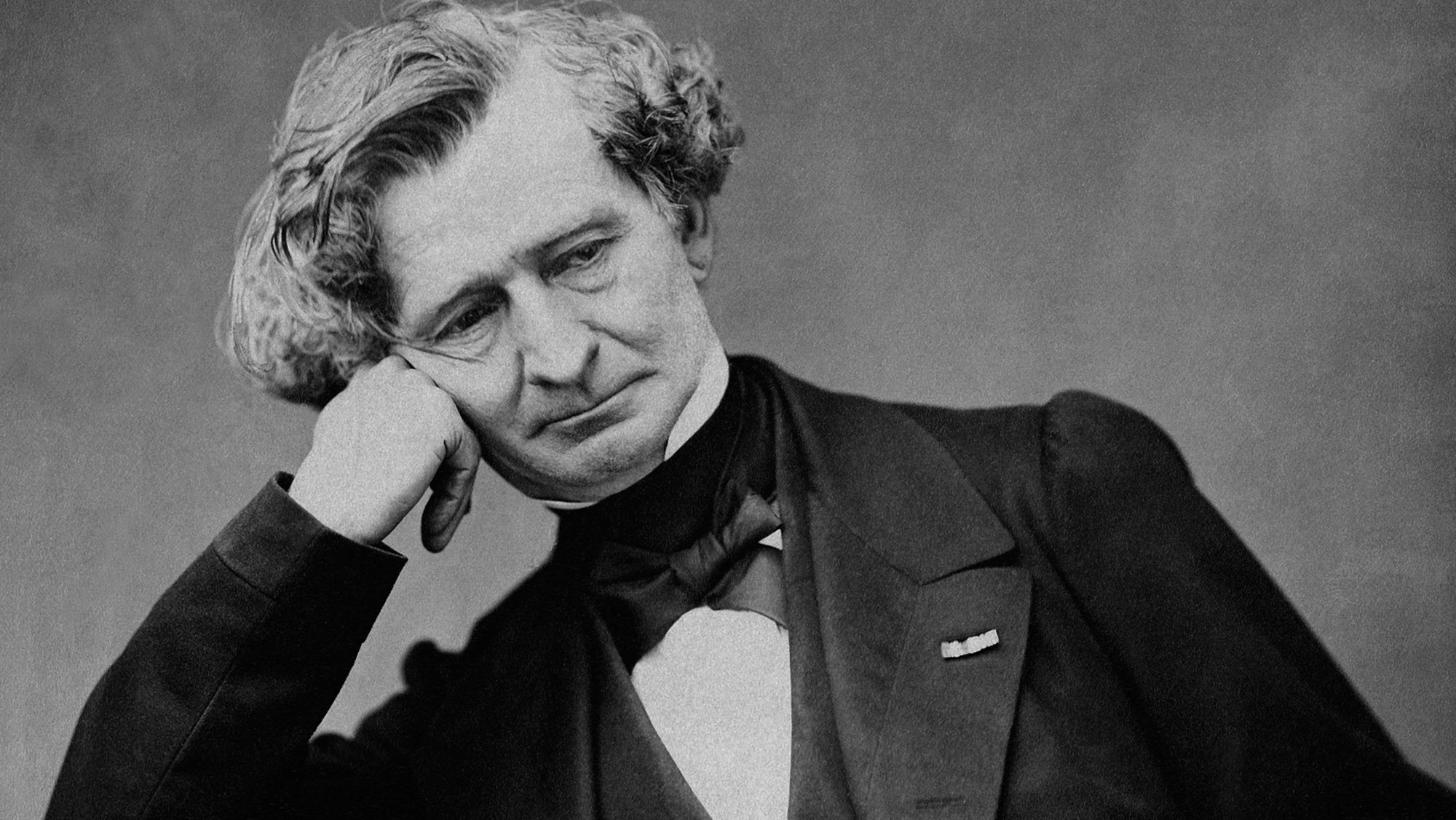- Portrait
- History

A member of the educated classes, a librarian, music critic, composer, eccentric, genius – Hector Berlioz combined many gifts and facets. This unusual mix predestined him to become one of the most visionary minds of his time. To mark the 150th anniversary of his death this year, Musikfest Berlin is dedicating a programmatic focus to the French composer. The Berliner Philharmoniker’s contribution is a performance of Berlioz’s dramatic symphony Roméo et Juliette.
Born in 1803 in La Côte-Saint-André, a small commune in the Département Isère, he grew up in a wealthy, distinguished medical family who provided him with an excellent education. At the age of 14 he began to compose (his musical talent could not be ignored), nevertheless his career seemed to be predetermined: he was to become a doctor like his father. In 1821, he went to Paris to study medicine – and there he discovered his passion for opera. Four years later, he became an official student at the Paris Conservatoire. He had finally decided in favour of music and the free life of an artist – while making his living as a librarian and essayist.
Unconventional and revolutionary
From the outset, Berlioz strove to create a different kind of music that defied the academic standards taught at the Conservatoire: freer in form, more daring in harmony and beguiling in its timbres. His early works already testify to an unconventional creative will. When his cantata La Mort de Cléopâtre, in which he impressively describes the Egyptian queen’s last desperate moments before her suicide, was not accepted for the Rome Prize, Berlioz protested: “I would never have thought that a composer would have to avoid new means of expression if he was lucky enough to come up with them and if they fit into the context”. His great role models were the symphonies of Ludwig van Beethoven and the operas of Christoph Willibald Gluck, Giacomo Meyerbeer and Carl Maria von Weber.
An obsessive love
An avid theatregoer, in Paris he discovered his love of Shakespeare – and for the actress Harriet Smithson who he became obsessed with, and who ultimately agreed to marry him after years of futile courtship. The artistic fruit of this passion was his Symphonie fantastique, an autobiographical depiction of the anguish and fantasies of this love – a unique piece which attracted the attention of the musical world. The work was a great success for the composer, not only in France, but also in Germany. It was quite controversial: in the words of composer François-Joseph Fétis, this symphony was a “monstrous lump of notes”. “There is a whole Beethoven in this Frenchman,” was the judgement of Paris-based journalist Ludwig Börne.
Founder of the modern orchestra
With Harold in Italy, Roméo et Juliette and La Damnation de Faust, Berlioz created other symphonic works that were dramatically designed through and through and subsequently blew established genre schemes apart. His way of repeatedly picking up characteristic themes as a so-called “idée fixe” and overriding traditional forms paved the way for the tone poems of the later 19th century and for Richard Wagner’s leitmotif technique. Although Berlioz was a musical storyteller, his great success in the most dramatic of all musical genres, opera, was denied him during his lifetime. Neither his opera Benvenuto Cellini, first performed in 1838, nor Les Troyens, completed in 1858, enjoyed success.
His musical visions often failed because of Berlioz’s own lack of moderation and detachment from reality. While he remained highly controversial throughout his life as a composer in his homeland, he was celebrated as a conductor and composer on his concert tours to Germany, Austria, Russia, London, Prague and Budapest. Berlioz, who died lonely and disillusioned in Paris in 1869, was regarded as a magician of sound who was able to effectively bring out individual instruments. He recorded his experience and insight in his Treatise on Instrumentation which is still relevant today and which leads him to be regarded as the founder of the modern orchestral sound.
Concert excerpt: Hector Berlioz's Grande Symphonie funèbre et triomphale